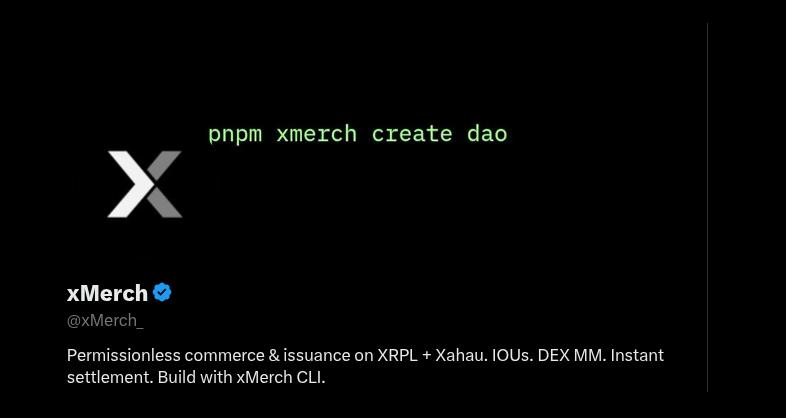Ever Heard Of Evernode?
Evernode is a smart contract network, and a 'decentralized infrastructure', or 'DePIN' marketplace.
What is DePIN?
In the crypto/Web3 space, these are projects that tokenize real-world infrastructure using cryptocurrency incentives. Instead of a single company owning and running hardware, DePIN projects rely on community participants to provide and operate infrastructure, and then reward them.
Types of DePIN
There exist six major types of DePIN projects:
- Wireless / Connectivity
- Computing / Cloud
- Storage & Data
- Sensors / Mapping 5.Energy / Resources
- Other niche infrastructure (transport, satellites, IoT, etc.)
Probably the most famous crypto DePIN project is "Helium" (HNT), which offers mobile hot spots. "FileCoin" (FIL) is also well-known, and offers decentralized storage, where users pay to store data, and providers earn rewards for supplying disk space.
Evernode
In the strict context of DePIN, Evernode is a marketplace that provides decentralized hosting services for developers of decentralized applications, or 'dApps'.
Not Just DePIN?
One of the community members I talked with was quick to point out that Evernode is also a revolutionary smart contract platform, and contains much greater flexibility than the DePIN label may indicate to the uninitiated. He believes that Evernode should not be judged by the same yardstick, and that its version of DePIN is more of a fusion of Web 2.0 and Web 3.0.
Turns out he was correct, but I'll get to the technical details in a minute. For now, you can consider it to fit in the "Computing / Cloud" category listed above.
From the Evernode docs:
Hosts lease smart contract hosting to Evernode tenants in exchange for Evers (EVR)
Anybody can become a host; it is a public network.
History
The two people that I associate with the leadership of Evernode are:
The idea for Evernode is based on using the XRP Ledger consensus model for a different application; the management of smart contracts and the associated provisioning of decentralized infrastructure.
Project Timeline
2018-2021 Ideation
2021 Concept Elaboration
Mid 2022 Development & Community Engagement
Late 2022 Testnet + Hooks integration
2023 Initial Distribution & Infrastructure Building
- Snapshot of XRP holders taken for future EVR distribution.
- Evernode testnet expanded, and more detailed technical documentation published.
2024 Launch Year
- Evernode mainnet launched (early 2024).
- EVR IOU token issued on XRPL.
- Host network officially opened for participants to run nodes and earn EVR by hosting contracts.
- First dApps and contracts deployed on Evernode.
How To Use Evernode Infrastructure
You don't have to run or maintain a node to use Evernode hosting.
If you're a developer, the general idea is to deploy a decentralized application (dApp), along with an associated smart contract that is executed in the background. The Evernode network hosts the smart contract, and you pay for that service using EVR.
Many smart contract networks don't serve front-end web files (like HTML/CSS/JS): but Evernode gives you that option. Developers are able to install and use reverse proxy servers such as nginx!
This differentiation is a massive benefit for developers of smart contracts, and can greatly simplify development when compared to other smart contract platforms such as Ethereum. This ability also allows the hosted smart contract to interact with the outside world in a true sense, to be its own 'oracle'.
Truly a game-changer for smart contract networks ... and for the two ledger platforms that it interoperates with!
 Evernode Concept Diagram
Evernode Concept Diagram
In addition to the ability to host entire sites, the smart contract portion of an Evernode installation can be written in any widely-adopted "POSIX" programming language, including JavaScript / TS, C / C++, Python, Bash script, Rust, Nodejs, and even Solidity.
A fan site with a myriad of helpful content, tutorials, and videos is here: evernode.fans/
How To Earn EVR As A Host
If you want to contribute to the Evernode ecosystem as a host, you'll need 500 EVR for the registration fee, and about ~ 20 XAH to maintain your host for a few months. The XAH pays for 'heartbeats', reserves, and ongoing transaction costs.
In terms of infrastructure, you'll need a linux server.
The overall steps for hosting:
- Server preparation
- Install Evernode Software (HotPocket & Sashimono)
- Registration: Purchase membership NFT
- Maintain your host
- Earn EVR (passive)
That's the high-level explanation for hosting. If you're interested in learning more about it, here is the link:
Tokenomics
Speculation in EVR is already underway, with a listing on multiple exchanges:
- BitMart
- Coinex
- BItrue
- MEXC
In terms of utility, EVR tokens serve multiple purposes:
- Host Registration: 500 EVR required to register as a host
- Network Governance: Hosts can vote for governance candidates via heartbeats
- Payment Medium: Used to pay for computational resources and smart contract execution
- Incentive Mechanism: Rewards hosts for providing infrastructure and maintaining network uptime
The initial distribution comprised 28% of the total supply, and current circulating supply also includes the first series of epoch releases, for a total circulating supply of 36,250,000 EVR.
Initial distribution:
- XRP Holders: 5,160,960 EVR
- Founders: 5,160,960 EVR
- Beta Testers: 5,160,960 EVR
- Evernode Project: 5,160,960 EVR
The 'epoch' release schedule traverses 118 years into the future, for a total maximum supply of 72,250,000 EVR:
 EVR Release Schedule
EVR Release Schedule
The schedule attempts to result in more and more restrictive tokenomics over time, with 10 epochs all releasing the same amount (5,160,960 EVR), but over increasingly lengthy periods. In addition, the reward rate for infrastructure providers 'halves' with each epoch.
Here is the table of epochs:
 EVR Epoch Breakdown
EVR Epoch Breakdown
The tokenomic structure is a daring bet on the value of EVR, as implied by the schedule; it is the primary vehicle for rewarding infrastructure providers, so the market price and liquidity will play a role in the quality of the network.
Evernode Is A Bet On Web 3.0
A champion of the project, Richard Holland, is also one of the lead architects of the Xahau network, where its token is hosted. This means that there should be very strong cross-network support for the two projects, generally.
Of the various smart contract providers in the XRP ecosystem, Evernode is a unique and captivating choice, due to its innovative tenant-host configuration, the ability for smart contracts to interact with the outside world, the support of multiple programming languages, and a sustainable ecosystem with attractive tokenomics.
It also boasts the flexibility to interact with both the XRP Ledger and Xahau.
Web 3.0 is a general term given to an Internet built on decentralized technologies. If you believe in the future of decentralization, then I recommend you spend some time researching Evernode.
X>
Sources:
https://www.evernode.org/
https://docs.evernode.org/en/latest/hosts/evernode-host.html
DM Q&A with @AverageJohnXRP
www.helium.com
www.filecoin.io
DePIN categories (wireless, compute, storage, sensors, energy, etc.):
Messari’s DePIN Sector Map (2023/2024 reports)
Multicoin Capital’s “Investing in DePIN” essays
CoinDesk and The Block articles introducing DePIN as a theme
General definitions:
Industry-standard crypto glossaries (CoinMarketCap, Binance Academy)
Ecosystem mappings (DePINscan, Messari dashboards)
coinmarketcap.com
https://evernode.fans/
https://medium.com/@info_25808/how-to-setup-an-evernode-host-f6698e30f5a3
https://www.youtube.com/watch?v=qfE3HPdUkp0







